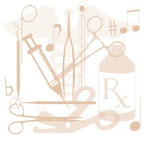
Music is being utilized today in hospitals and clinics around the world. Music has an ability to minimize pain, leading to the combination of music and anesthesia in operations where routine medical sedatives are not effective. Music medicine is beginning to be considered a complimentary therapy.
"People undergoing surgery require less anesthesia, awaken from anesthesia more quickly and with less side effects, and heal more rapidly when healing music is played before, during and after the surgical procedure. Patients recovering from heart attacks and strokes respond much more quickly to treatment when soothing music is played in their rooms." 1
In 2004, the Robert Wood Johnson Foundation released a report based on 600 studies showing that design in hospitals, including sound and light, can have a dramatic effect on how fast and how well patients recover. The concept is to program the hospital with musical selections, one for every place, time and stage of recovery. From the intensive care unit to the chapel, music will be used in each space to speed up the healing process, assure optimal performance by hospital staff, and help visitors best pass the time and peacefully find their way around. The designers of today's hospitals are thinking about the idea of 'prescriptive sound', sound designed for direct application to ease specific traumas, as part of an effort to create a new holistic healing environment.
Many diverse hospitals around the country are incorporating music as therapy in a variety of applications. At St. Agnes hospital in Baltimore , Maryland , critical care patients listen to classical music. "Half an hour of music produces the same effect as 10 milligrams of Valium," reports Raymond Bahr, MD, director of coronary care. At Nathan Goldblatt Memorial hospital in Chicago , Ill , music precedes anesthesia in the operating rooms. The University of Chicago 's Medical Research Center combines music and anesthesia. "Music can reduce anxiety and stress, lower heart rates and blood pressure and help minimize cardiac complications after an operation."
"Picture your hospital experience in the year 2084. Your first floor room opens onto a lush courtyard garden. The TV & soap operas have been replaced with the gentle sounds of healing music. Fresh scents of various flowers, spices and herbs waive through the room in prescriptioned response to your ailment. A nearby lamp bathes you in soft colors, which seem to soothe your pain. Barely audible words of encouragement, joy and humor come from the tiny speaker near your pillow. A fantasy? Not so say the participants at the Hospital As Temple conference which took place earlier this year in the Netherlands . Creating a healing environment was the theme of this second of a series of three conferences, organized by the Forum Health Care division of the Davidhuis Foundation in Rotterdam . These series of conferences endeavor to foster a new vision of medicine as it might be practiced in the Hospital of the future."






No comments:
Post a Comment